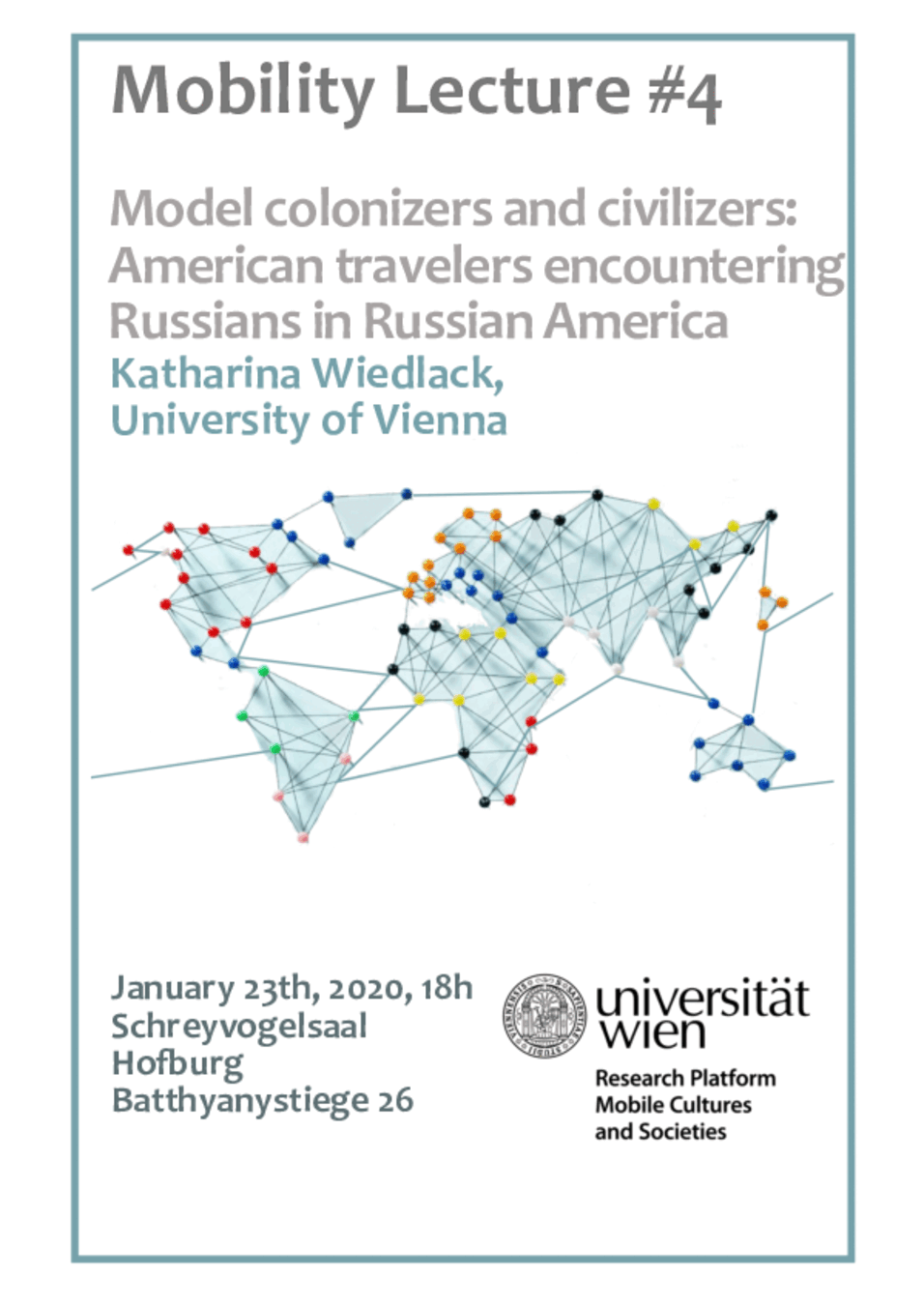In her talk Katharina Wiedlack wants to offer some ideas about the significance of Russia and Russian bodies for US-identity formation and the negotiation of ‘Western values’ during the 18th and 19th century, the time of the declaration of US independence and the Alaska purchase. While the importance of American westward expansionism and explorer culture for American identity formation has already been established by American studies scholars, such as Henry Nash Smith back in 1950, Alaska and its Russian colonizers have never been considered within such studies. The travel journals and anthropological books by American travelers such as John Ledyard (Dvoichenko-Markov 1952) or Charles Hallock (1886) however, indicate that the encounter with Russian settlers and the impact they had on Russian American (Alaskan) territory was important for the formation of a US-identity. These travel writings and scholarly analyses construct American identity and national belonging through their writing about Russian rival colonizers. Their ideas about Russians and the state of Russian civilization contradict research such as Larry Wolff’s (1994) and David Engerman’s (2004) that localized Russia as in-between the two poles of racialized barbarian Others and white European civilization as anti- or half-modern, not-yet-civilized. Without fully disputing these scholars’ findings, Wiedlack questions their universality. She argues that their work fails to consider both US independence from Europe and the US’s specific take on modernity, which manifested itself during the eighteenth and nineteenth centuries alongside Russia’s colonial imperial power.
Model Colonizers and Civilizers: American Travelers Encountering Russians in Russian America
23.01.2020 18:00 - 20:30
Organiser:
Forschungsplattform Mobile Kulturen
Location:
Schreyvogelsaal, Hofburg, Batthyanystiege 26, 1010 Wien
Zurück

